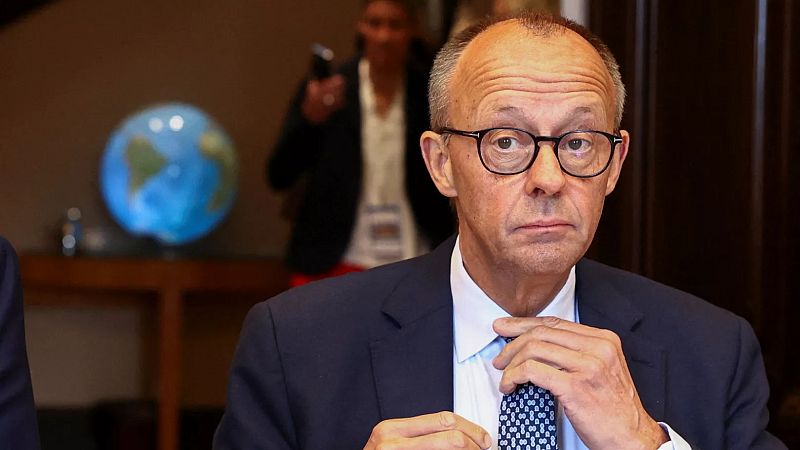
Germany's new government said on Wednesday it expects Europe's biggest economy to see minimal growth of 0.2% this year, with a forecast for 1.3% growth next year and 1.4% in 2027.
Berlin’s new forecast — a near stall — projects a limp outlook for the country and raises the stakes for Chancellor Friedrich Merz’s plan to pour €500 billion into infrastructure, promise faster investment approvals, and boost digitalisation.
The outcome matters well beyond Germany, and will influence European demand, supply-chain resilience, and the continent’s ability to compete with the US and China.
This is despite the fact that the outlook for 2025 is slightly higher than the previous government's forecast in late April for zero growth this year, expanding to 1% in 2026.
The German economy has shrunk for the past two years and has not seen significant growth for much longer. Merz’s government has made revitalising it a priority since taking office in early May.
Germany needed growth yesterday
Economy Minister Katherina Reiche said in a statement that “we need to act, now” on competitiveness and innovation.
She noted that a significant part of the expected growth will come from plans for increased government spending, and even that will only be effective if investments are made quickly — requiring fast planning and approval processes, something that Germany has so far lagged on.
“To secure long-term growth, we must end the reform backlog — reduce energy costs, foster private investment, address the tax burden that is high by international standards, dismantle bureaucracy, open markets and enable innovation,” she added.
Merz's government has launched a programme to encourage investment and set up a fund to pour money into Germany’s creaking infrastructure over the next 12 years. He also promised to cut red tape and speed up the country’s lagging digitalisation.
A group comprising dozens of companies pledged in July to invest at least €631bn in Germany over the next three years, a figure that included some previously planned investments but was designed to send a signal of confidence in the economy.
Germany for years expanded exports and dominated world trade in engineered products like industrial machinery and luxury cars.
But it has suffered from increasing competition from Chinese companies, along with many other factors that have increased risks, including US President Donald Trump’s tariffs and trade threats.







